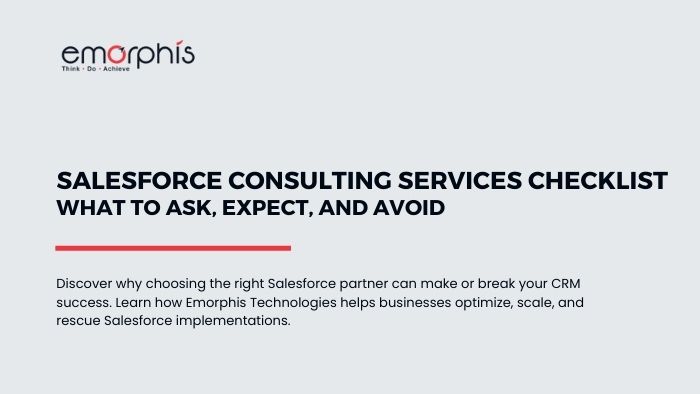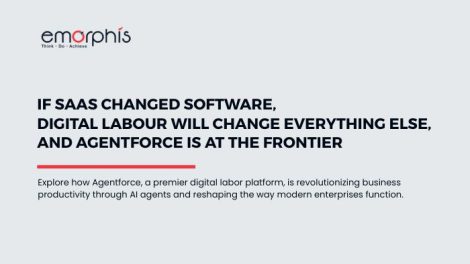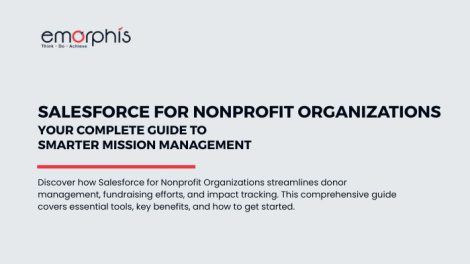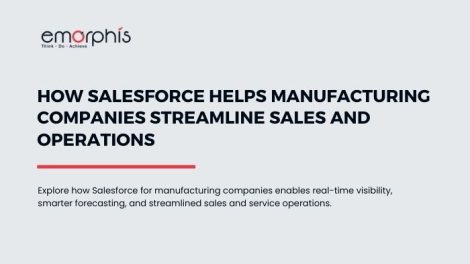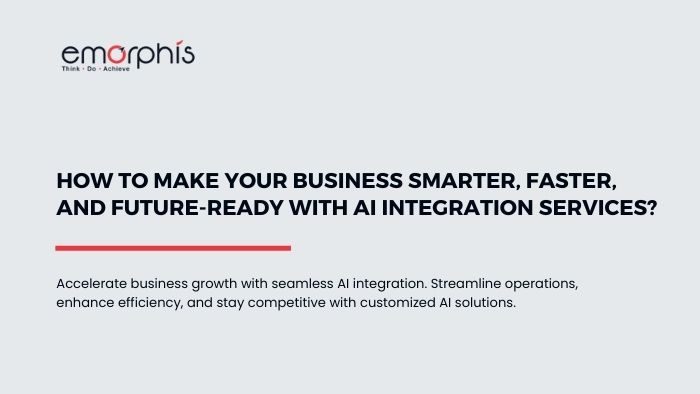If you're a business already using Salesforce or planning to, you probably know one thing for sure: success with Salesforce depends on the partner you choose.
We’ve seen it firsthand at Emorphis Technologies. As a certified Salesforce partner, we’ve helped companies untangle complex orgs, fix underperforming implementations, scale customizations, and drive adoption across sales, service, marketing, and beyond. In short? We've been the second (or third!) partner many businesses turn to after things didn’t go as planned the first time.
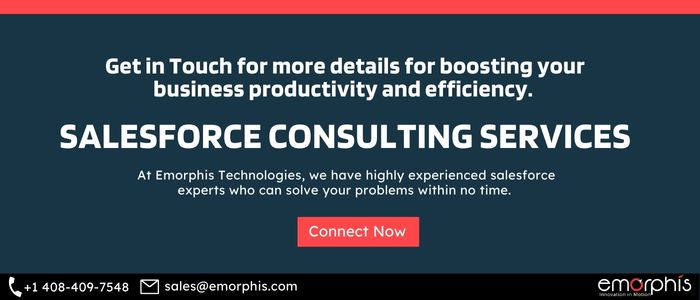
So, this guide isn’t just another checklist. It’s built from real conversations, real projects, and real outcomes. By the end, you’ll have everything you need to confidently choose the right Salesforce consulting services partner, whether you're scaling up, optimizing, or starting from scratch.
What to Ask Before Hiring a Salesforce Partner
A good partner won’t guess they’ll show you they’ve done it. Ask for use cases in your industry, with similar challenges or goals.
2. What’s your approach to discovery and requirement gathering?
Without a solid understanding of your business, tech alone won’t help. Ask how they learn your processes before recommending solutions.
3. How do you balance standard Salesforce features vs. custom development?
Custom doesn’t always mean better. Partners should know when to configure and when to code—and explain why.
4. Do you provide post-implementation support and optimization?
Going live is just the beginning. A strong partner will stick around to help optimize, scale, and train your team.
5. How do you handle user adoption and training?
Even the best implementation fails if users don’t use it. Ask what they do to make sure teams want to use Salesforce.

How to Train Your Sales and Marketing Teams for Successful Salesforce Adoption: Insights from Emorphis Technologies
6. Can you support integrations with our other tools?
From ERP to marketing automation—integrations are essential. Your partner should speak fluently about APIs, connectors, and data flow.
7. What’s your project management and communication style?
Transparency matters. Do they run agile sprints? Weekly syncs? Ask how they keep you informed, aligned, and in control.
What to Expect from a Great Salesforce Consulting Partner
1. A strategy-first mindset
They won’t jump to solutions—they’ll start with your goals, pain points, and what success looks like.
2. Certified and experienced consultants
Look for Salesforce certifications (Administrator, Developer, Architect, Consultant roles), and more importantly, ask who’s working on your project.
3. Business and technical fluency
You need a partner who speaks both Salesforce and business. They should understand your revenue models, service SLAs, and customer journeys.
4. Proactive recommendations
Great partners don’t wait to be told what to do—they anticipate needs and suggest better ways to solve problems.
5. Clear documentation and handover
Expect detailed documentation, admin guides, and walkthroughs, not just working code.
6. Measurable impact
The partner should align work with KPIs, like lead conversion, case resolution time, adoption rates, or data accuracy.
What to Avoid (Red Flags That Could Cost You)
1. Vague timelines and unclear scope
If they can’t explain their plan in phases or how they’ll approach delivery, it’s a no.
2. Overselling custom development
A good partner won’t push custom code unless it’s needed. Over-customization leads to technical debt.
3. No talk of change management
If they aren’t concerned with training or adoption, expect trouble down the road.
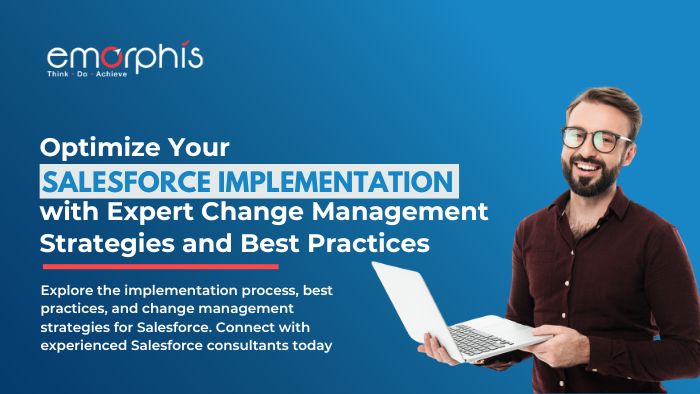
Optimize Your Salesforce Implementation with Expert Change Management Strategies and Best Practices
4. Treating all industries the same
You need industry-specific experience, whether you’re in healthcare, manufacturing, finance, or nonprofit. One-size-fits-all won’t work.
5. Lack of transparency in resources
You deserve to know who’s working on your project, not just the sales lead who pitched you.
6. Poor post-launch support
If they disappear after go-live, they’re not a true partner. Real value happens after the launch.
Final Thoughts
Salesforce is powerful, but only when implemented with precision, foresight, and business alignment. By using this checklist, you won’t just find a consulting partner, you’ll find the right one.

At Emorphis Technologies, we’ve worked with startups, scale-ups, and enterprises to accelerate ROI, streamline processes, and turn Salesforce into a true growth engine. We know what works, whether it’s integration, customization, CPQ, Experience Cloud, or Einstein AI.
Let’s talk if you’re ready to get it right the first time, or the next time.
Explore our Salesforce Consulting Services



